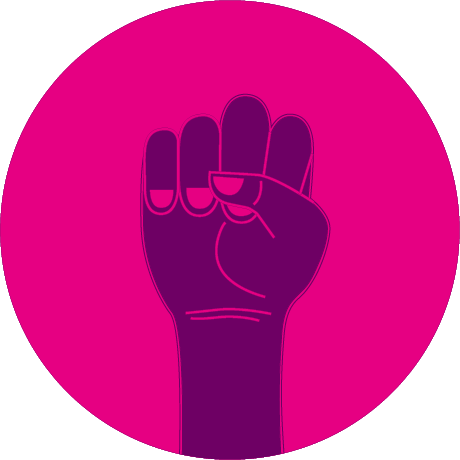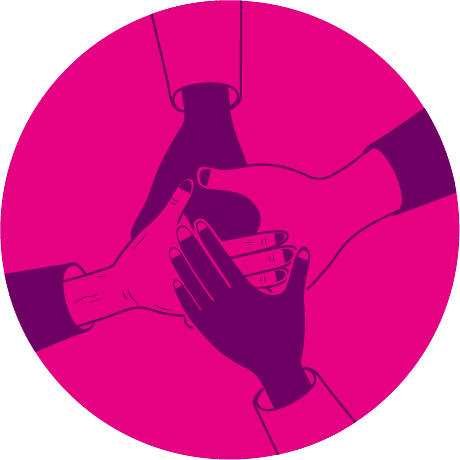Our Campaign Herstory
In 2006, the AIDS pandemic was ravaging the African continent. The very survival of communities was under threat: almost an entire generation of women and men were lost to AIDS, leaving millions of children without parents.
In the midst of this global health disaster, grandmothers courageously stepped forward to guide their grandchildren through their grief and toward a more hopeful future.
That’s where the Grandmothers to Grandmothers Campaign found its roots. Canadian grandmothers rallied, determined to raise funds and support for African women who were already doing so much.
Today, there is much to celebrate: grandmothers are marching for their rights, young people are becoming leaders, and over $40 million has been raised for the grandmothers movement.
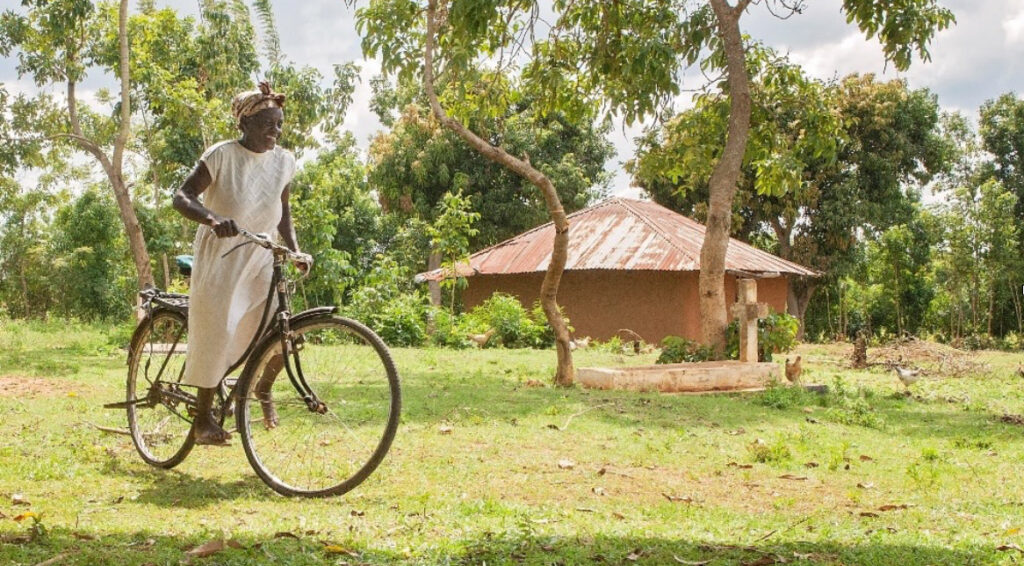
“We are singing songs of victory whenever we remember the state of despair we have come from. Years of walking together has led to greater understanding of each others’ strengths and weakness. There is hope; hope is the language that we have known over the years. We shall overcome; even HIV we shall overcome some day.”
-Joanne Kepher, Program Coordinator, Pendeza Africa (PENAF), Kenya

2006
Launch of the Grandmothers to Grandmothers Campaign
The dawn of a new movement.
On International Women’s Day in 2006, Stephen Lewis, alongside actress and activist Shirley Douglas, former Governor General Adrienne Clarkson, and South African grandmothers Rose Letabwa and Lucia Mazibuko announced the launch of the Grandmothers to Grandmothers Campaign.
It marked a bold evolution in the way foundation supporters committed to activism, solidarity and fundraising.

2016
10th Anniversary of the Grandmothers Campaign:
Celebrating and Re-Dedicating
To mark the 10th Anniversary of the campaign, grandmothers groups organized flash mobs across Canada, came together at regional gatherings to celebrate the sisterhoods forged, and re-dedicated their commitment to raising awareness and funds in support of grandmothers in sub-Saharan Africa.

2006
Launch of the Grandmothers to Grandmothers Campaign
The dawn of a new movement.
On International Women’s Day in 2006, Stephen Lewis, alongside actress and activist Shirley Douglas, former Governor General Adrienne Clarkson, and South African grandmothers Rose Letabwa and Lucia Mazibuko announced the launch of the Grandmothers to Grandmothers Campaign.
It marked a bold evolution in the way foundation supporters committed to activism, solidarity and fundraising.
2006
Toronto Gathering
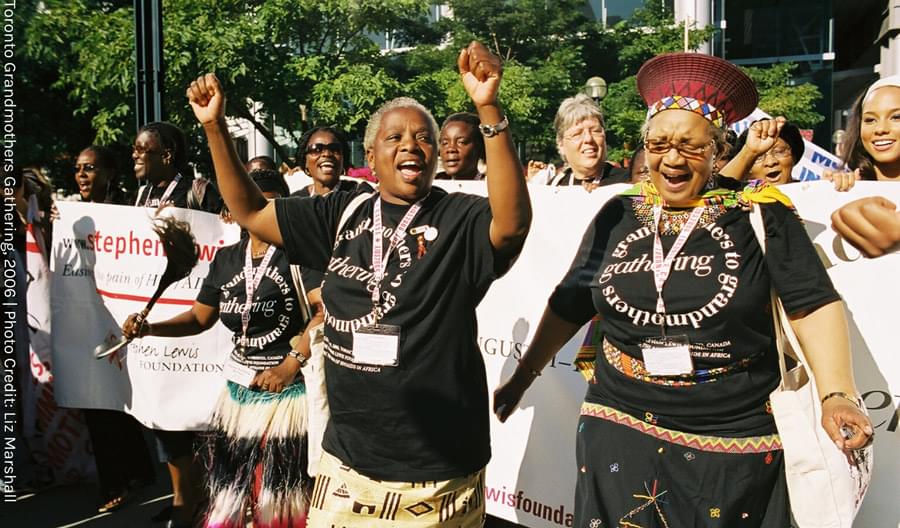
A few months later, on the eve of the 16th International AIDS Conference in August 2006, in Toronto, Canada, 100 African and 200 Canadian grandmothers gathered for three historic days of workshops, facilitated by the grandmothers themselves.
They shared their journeys with grief, stigma, caring for grandchildren and fundraising. Canadian grandmothers heard the experiences of African grandmothers first-hand, and all women affirmed a shared identity as leaders.
On the final day of the gathering, grandmothers marched in the streets of Toronto and presented the Toronto Statement.
“We will not rest, until they can rest.” – Canadian grandmothers
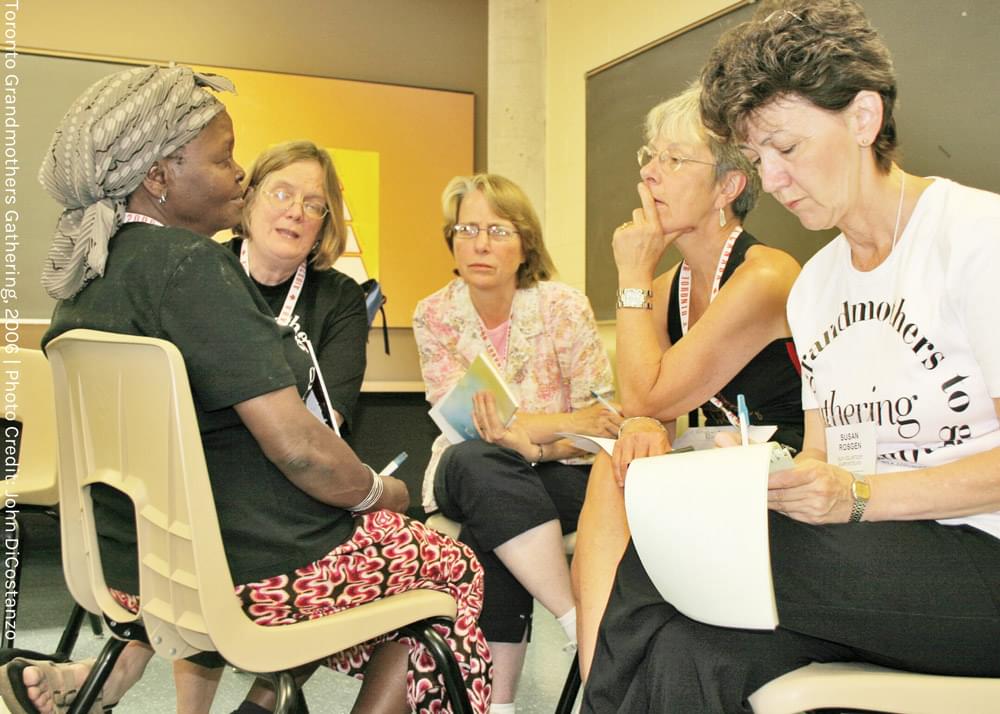
2007
Grandparents Solidarity March
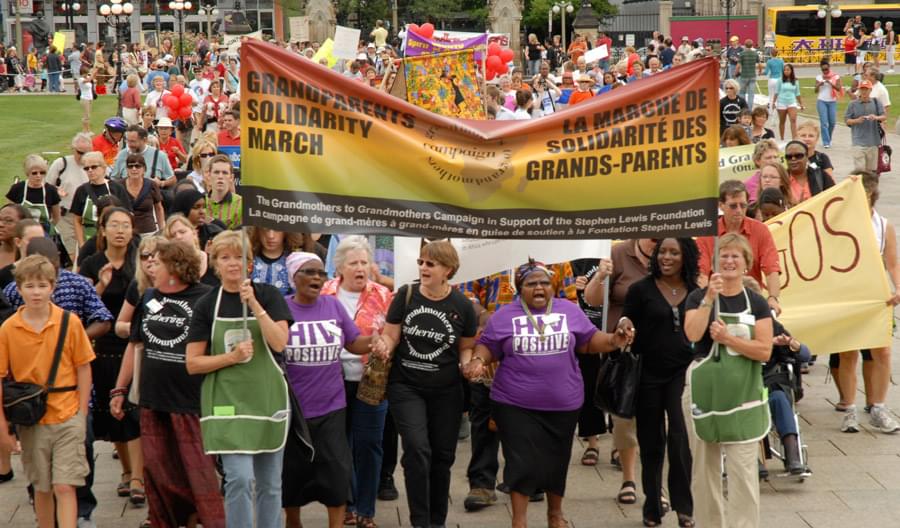
In September 2007 hundreds walked on Parliament Hill in Ottawa for the Grandparents Solidarity March.
Determined Canadian grandmothers were joined by South Africans Darlina Tyawana and the late Zodwa Ndlovu, as well as Elizabeth Mataka, UN Special Envoy for HIV/AIDS in Africa.
2008
The momentum grows exponentially!
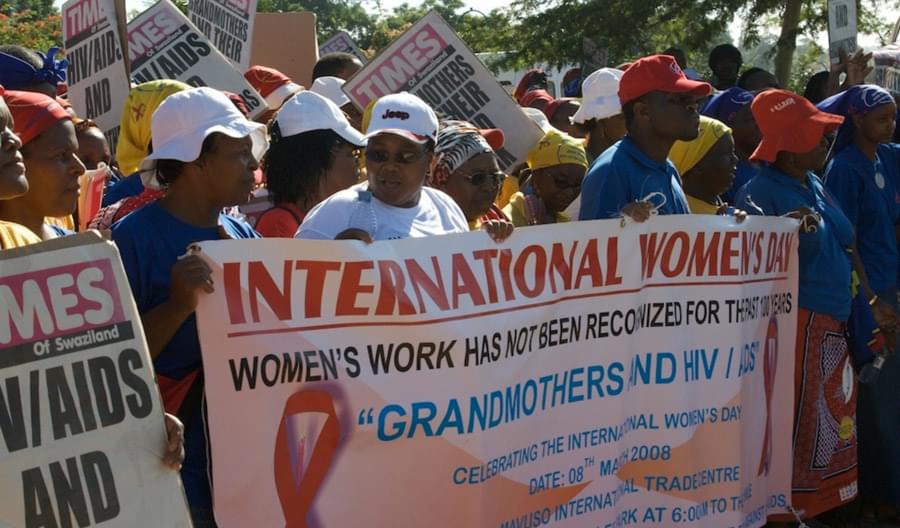
By early 2008, there were nearly 200 grandmothers groups across Canada, stretching from British Columbia to the Northwest Territories and Newfoundland and Labrador – and they had raised more than $2 million!
A delegation of 12 Canadian grandmothers traveled to Uganda, South Africa and Eswatini (formerly Swaziland) to visit SLF-funded projects.
The delegates saw first-hand how African grandmothers were beginning to move beyond basic survival – forming peer support groups, planting community gardens, receiving health care and psychological support, and ensuring that their grandchildren were enrolled in school.
On March 8 – the two-year anniversary of the campaign – those 12 grandmothers marched, along with 1,000 women in Eswatini, to mark International Women’s Day.
Upon their return to Canada, each woman dedicated a year to public speaking, community outreach and education.
2010
African Grandmothers Gathering
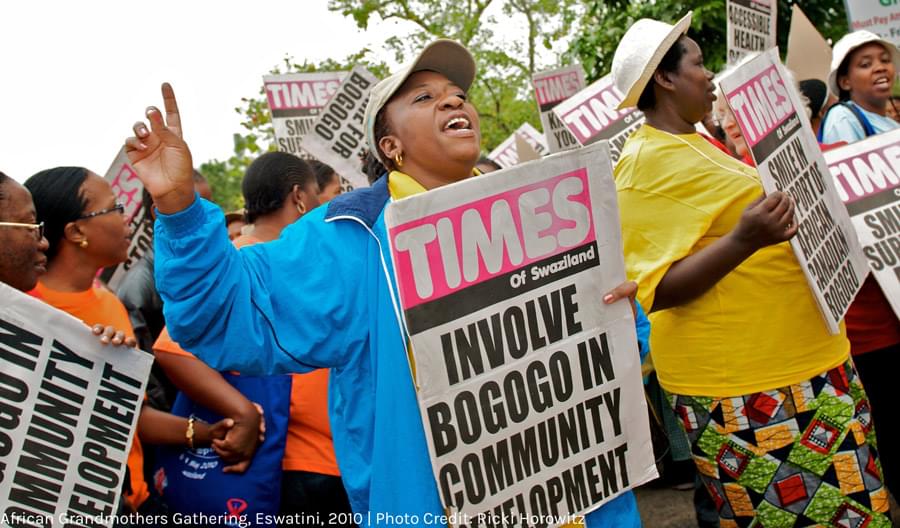
Five hundred grandmothers from 13 African countries and 42 Canadian grandmother-delegates travelled to Manzini, Eswatini, for the first-ever African Grandmothers Gathering
Whether from Botswana, Canada, Ethiopia, Eswatini, Kenya, Malawi, Mozambique, Namibia, Rwanda, South Africa, Tanzania, Uganda, Zambia or Zimbabwe – grandmothers’ expertise in turning the tide of the pandemic was undeniable.
The gathering culminated in a 2,000-strong march through Manzini, demanding international support as they courageously worked at the frontlines of the AIDS pandemic.
At the close of the gathering, the grandmothers issued the Manzini Statement, a clarion call to the world for recognition, greater resources, legal protections and a richer quality of life:
“To the international community we say: true sustainability is in the hands of grandmothers and other community activists. We call on you to deliver on your promises.”
“We are strong, we are visionary, we have faith and we are not alone. Together we will turn the tide of AIDS.”
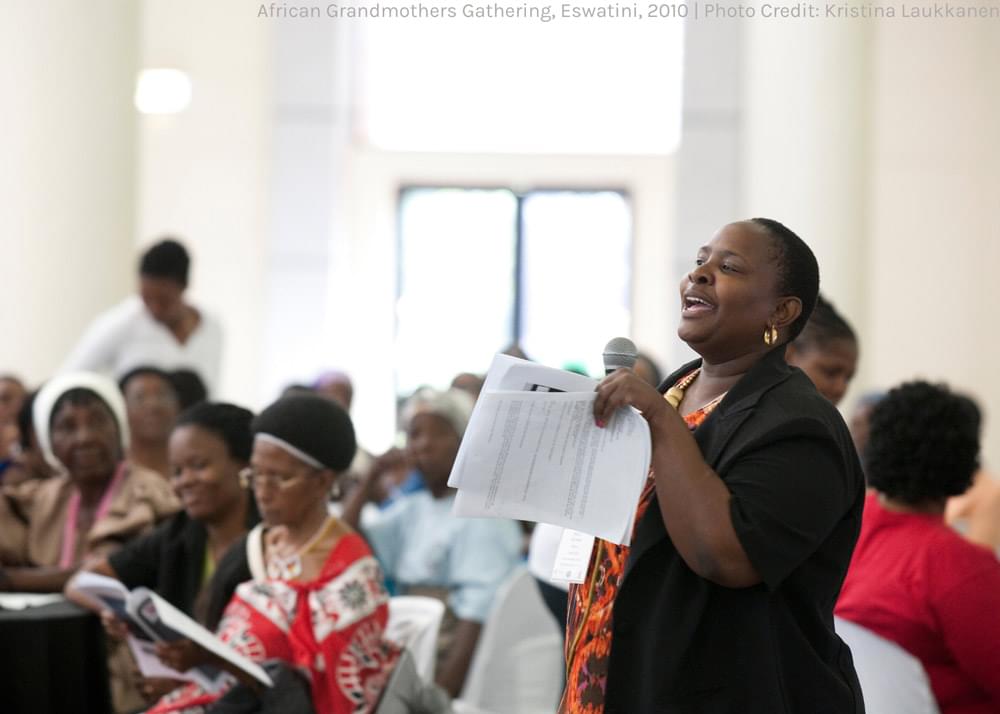
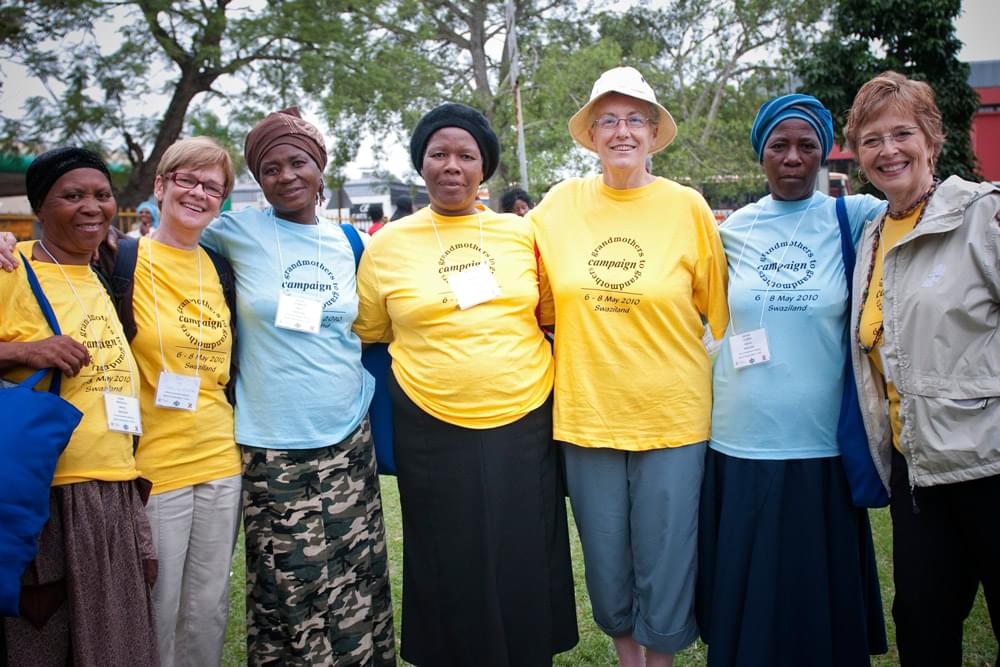
2010
AfriGrand Caravan
In 2010, African grandmothers and granddaughters travelled to 40 communities across Canada sharing their strategies, challenges and triumphs.
Canadians were inspired to join the movement. They formed new grandmothers groups, forged partnerships, and pledged continued support for the African grandmothers and children in their care.
2010
The Grandmothers Campaign reaches new heights
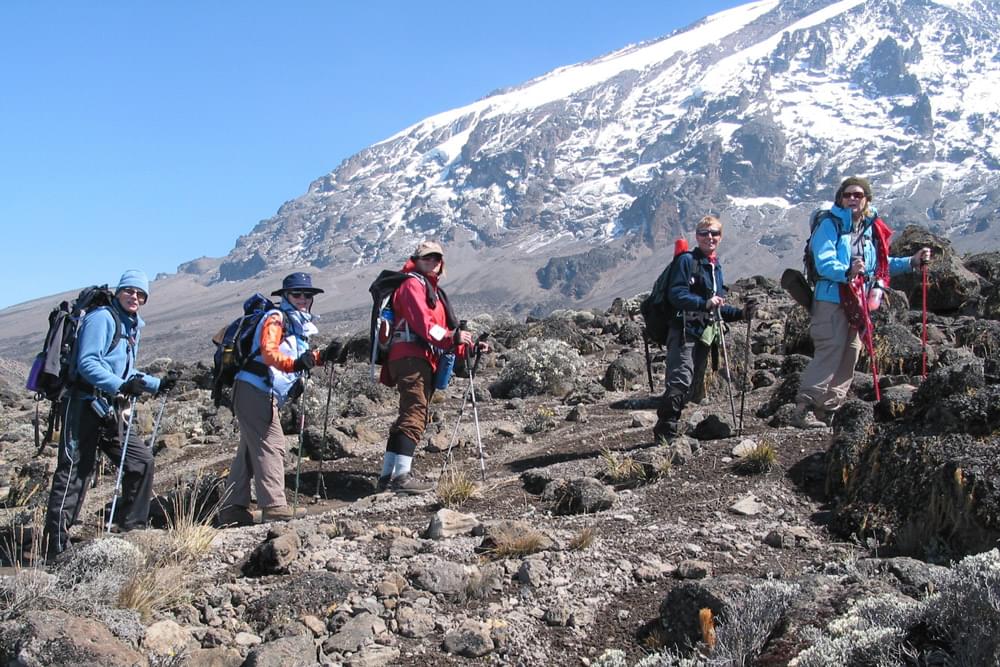
An impressive 220 grandmothers groups had raised more than $7 million!
Stride to Turn the Tide was launched. Grandmothers walked, cycled and moved.
Community by community, they held Dare to Dine events, teas and luncheons, sales of all sorts, and games to raise funds.
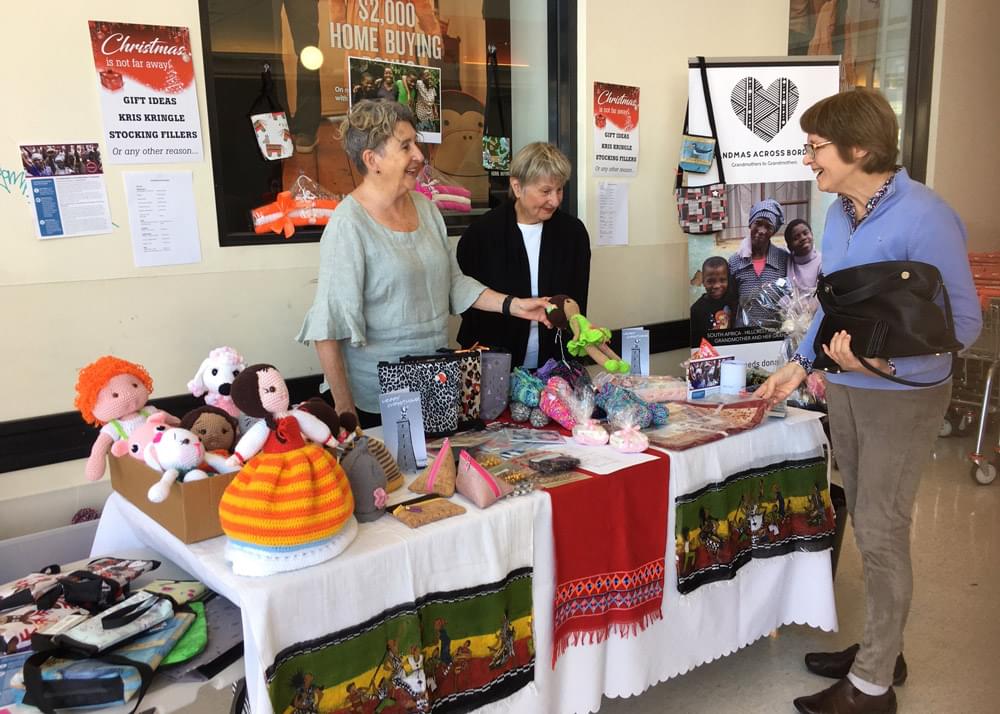
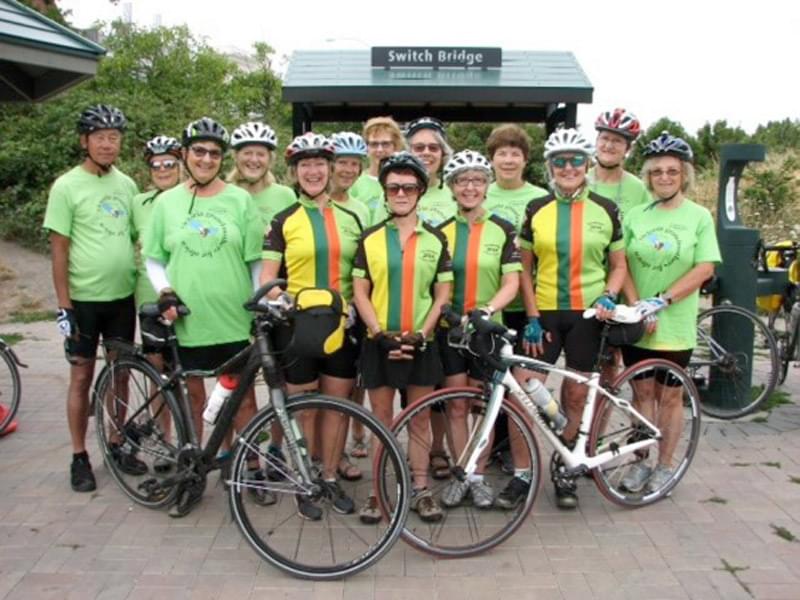
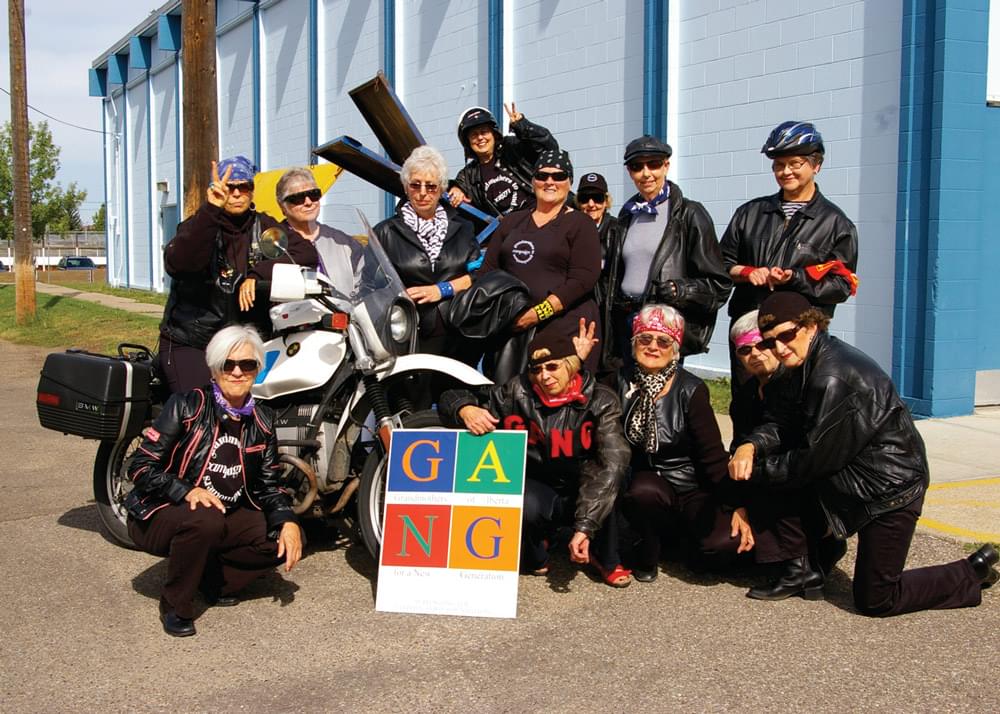
2013
African Grandmothers Tribunal: seeking justice at the frontlines of the AIDS crisis
Six grandmothers from sub-Saharan Africa presented their powerful personal testimonies at a “people’s tribunal” in front of an enraptured crowd in Vancouver.
They spoke to esteemed judges Theo Sowa, Mary Ellen Turpel-Lafond, Joy Phumaphi and Gloria Steinem about the triple threat of discrimination that grandmothers face: sex, age, and HIV status.
Grandmothers and expert witnesses argued for improved laws and policies, funding priorities, positive cultural practices and access to justice.
They demanded protection of their rights: to property, bodily integrity, and income security; freedom from violence; and quality health care.
The tribunal charted a new path forward with a final call for action.
“The time has come. It’s time to recognize that grandmothers at the forefront of the HIV and AIDS crisis must have our human rights respected and protected. It’s time to support our organizations fully and put systems in place to address our needs and the needs of the children in our care.”
“It’s time to recognize our contribution to the survival of our communities and the expertise we have developed to do so, by giving us our rightful place and voice wherever decisions are being made.”
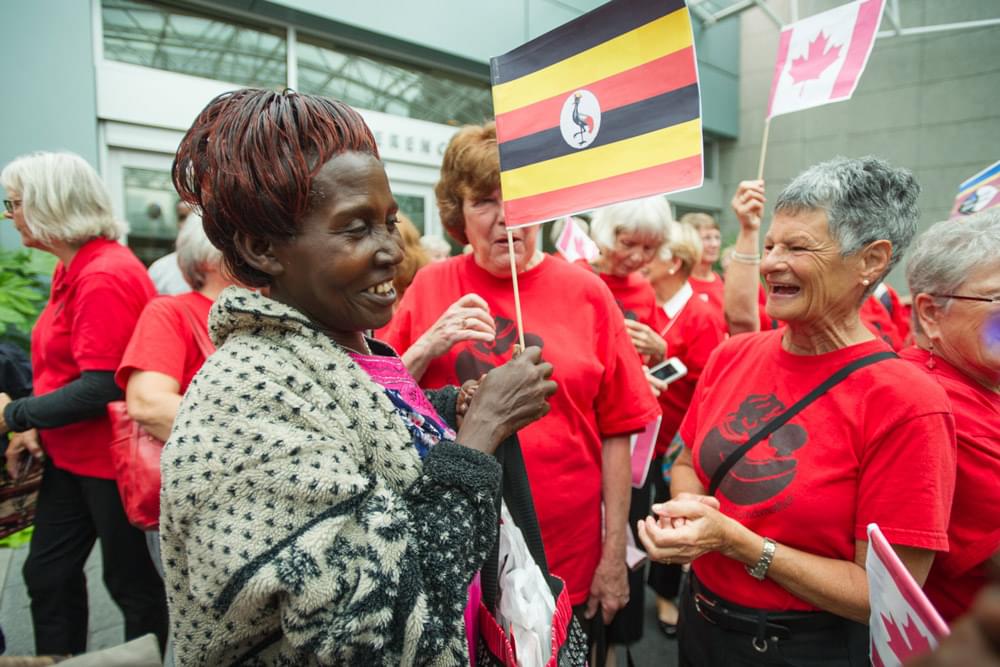
2014
Grandmothers Campaign Educational Trip to visit SLF partners
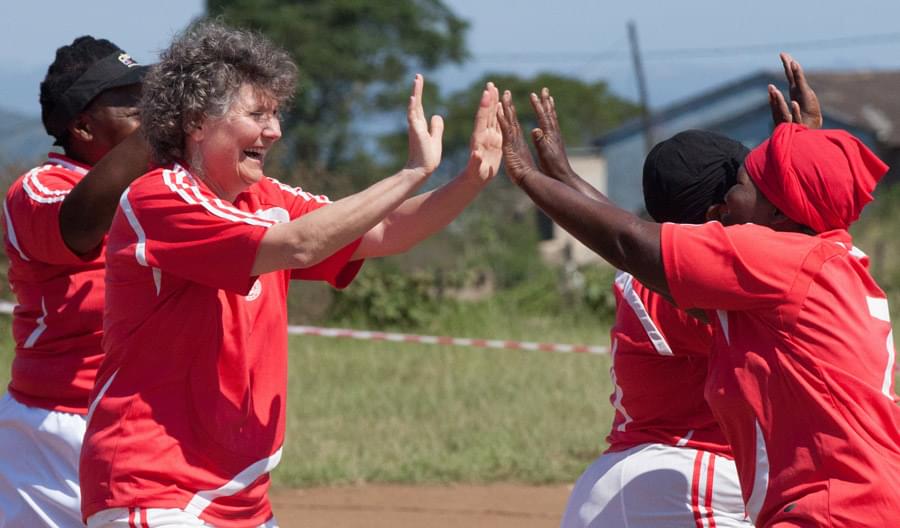
A group of 20 Canadian grandmothers travelled to four grassroots partner organizations in Ethiopia, Rwanda, and South Africa.
They visited Hillcrest AIDS Centre Trust (HACT) in South Africa, where the foundation had been invited to field a team of Canadian grand(m)others at the annual Gogolympics – an active celebration of their Granny Project!
When they returned, the Canadian grandmothers spoke to their own communities, educating young and old alike.
2014 and 2015
The movement spreads around the world
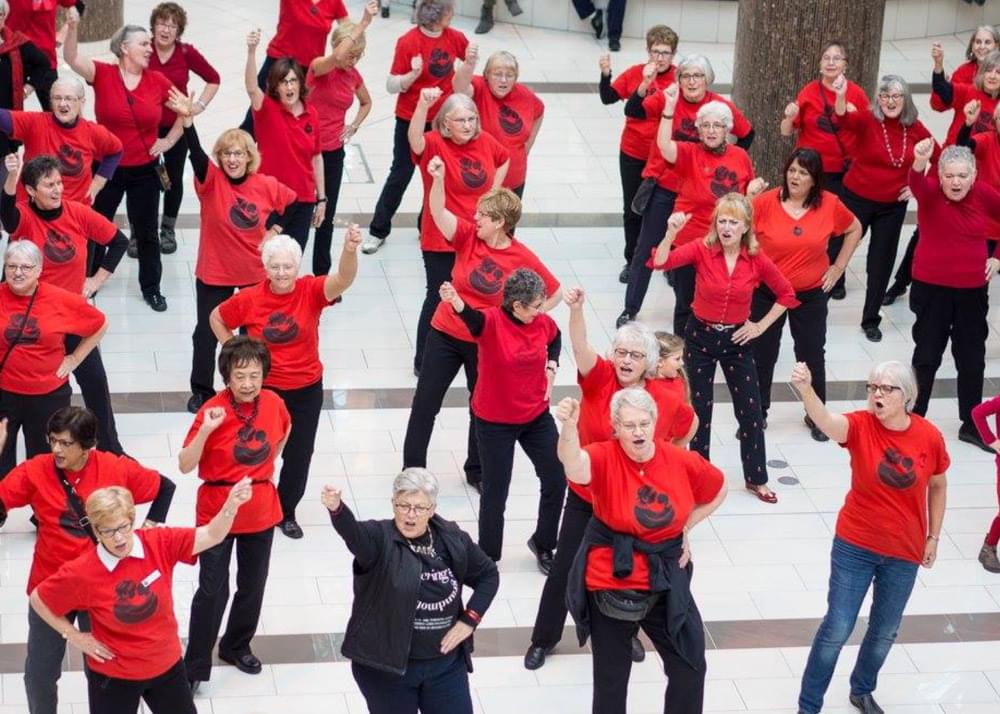
Grandmothers groups formed in the United States, the United Kingdom, and eventually in Australia.
2015
Uganda Grandmothers Gathering
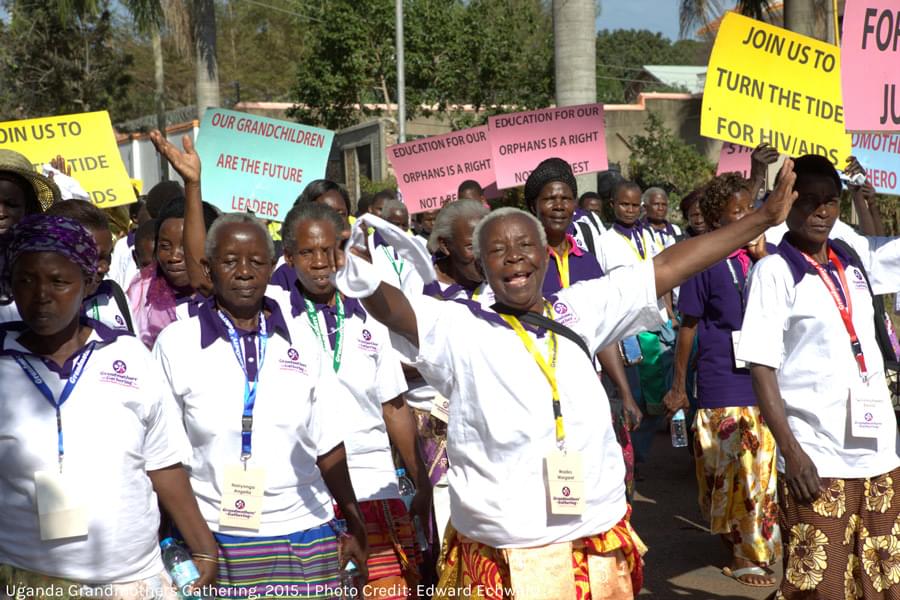
Five hundred grandmothers from across Uganda made history in Entebbe.
They came together for the country’s first national Grandmothers Gathering – an unprecedented opportunity to voice their experiences, share their innovative strategies for responding to the pandemic, and collectively lay claim to constitutionally-protected rights too often denied.
The Ugandan grandmothers were joined by delegations from Kenya and South Africa, as well as 22 grandmothers from Canada and the United Kingdom, representing thousands of members of the Grandmothers to Grandmothers Campaign.
After two days of workshops, they walked jubilantly through the streets of Entebbe, demanding access to education, health care, land, legal representation, and freedom from violence and theft.
The participants released the powerful Ugandan Grandmothers Statement, calling on government, the private sector, civil society, media, UN agencies and members of the international community to support their collective vision.
“We are 500 grandmothers here today, but we represent millions more. We are not young, but we are strong. We want the world to know how much we have achieved and how much we have overcome. We have breath to sing and energy to dance. We are moving forward! Join us!”
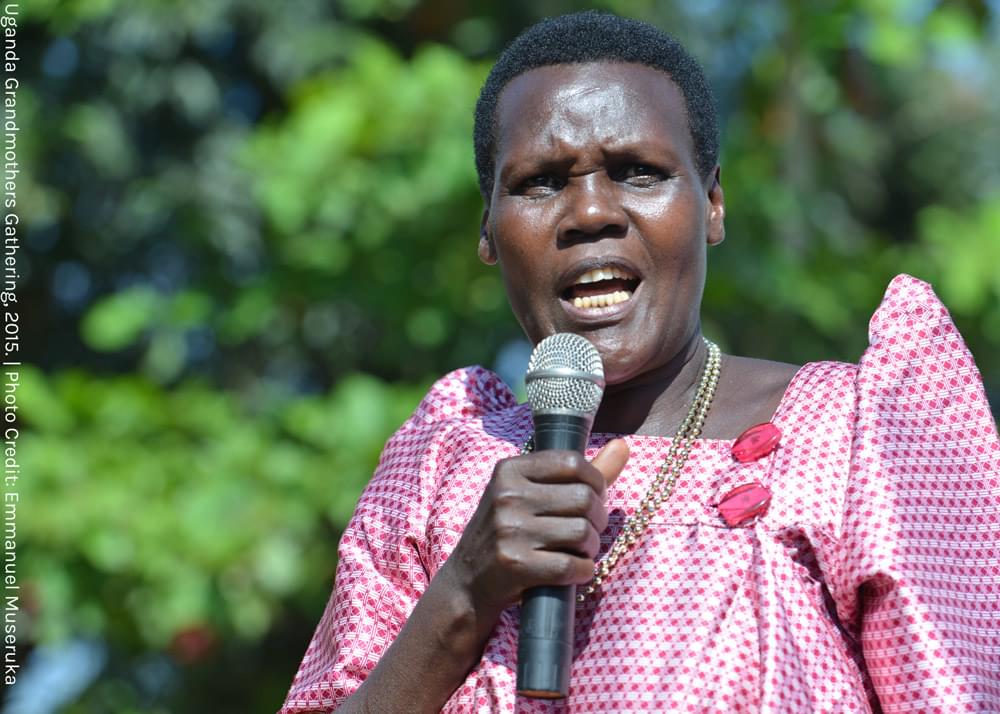
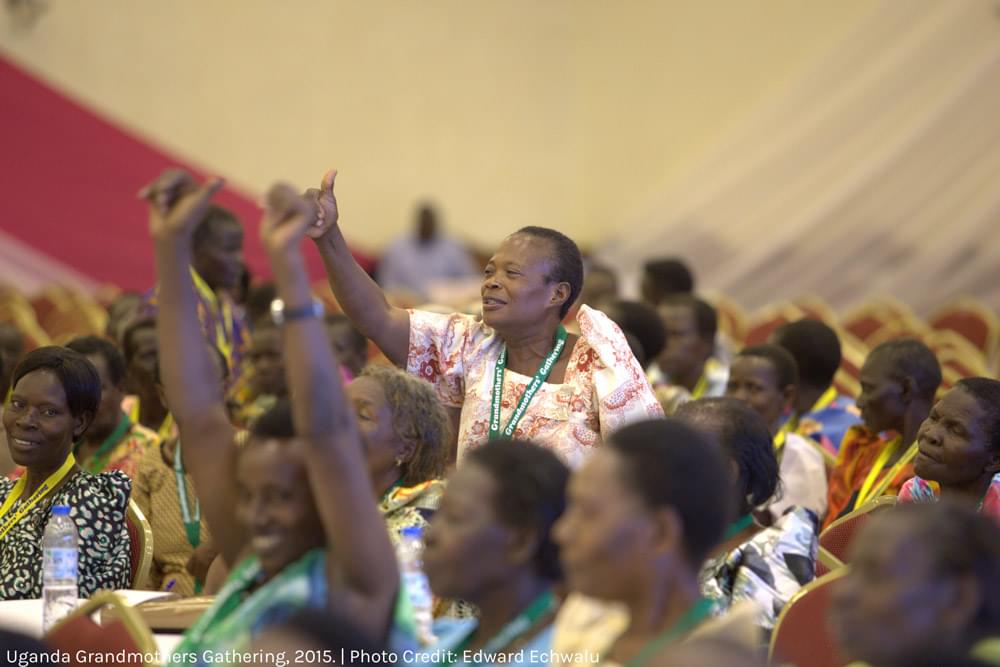




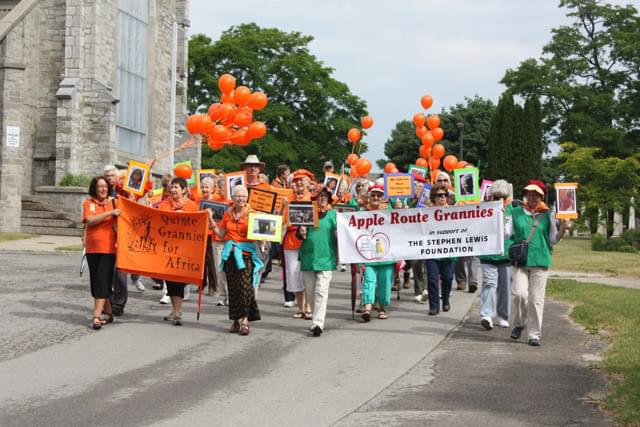




2016
10th Anniversary of the Grandmothers Campaign:
Celebrating and Re-Dedicating
Grandmothers groups bravely organized flash mobs across Canada, came together at regional gatherings to celebrate their sisterhood, and re-dedicated their commitment to raising awareness and funds in support of grandmothers in sub-Saharan Africa.
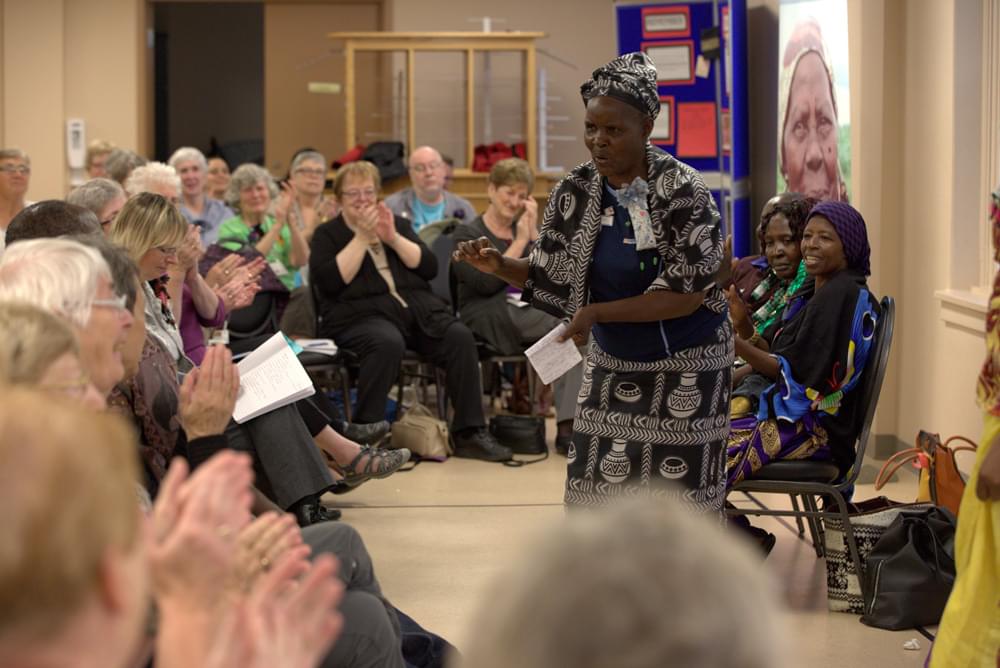
2016
South Africa Grandmothers Gathering
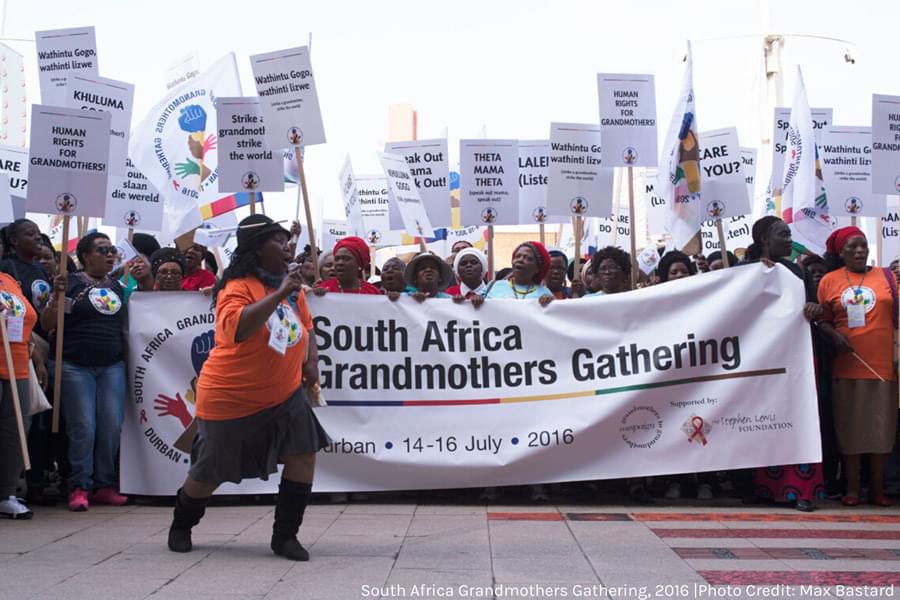
Three hundred grandmothers from across South Africa participated in a national Grandmothers Gathering in Durban.
On the eve of the 21st International AIDS Conference, the South Africa gathering united women collectively caring for thousands of children whose parents died of AIDS-related illnesses, reminding the international community there will be “nothing about us, without us.”
Led by six South African grandmothers representing an alliance of 21 community-based organizations, participants discussed their pivotal roles in overcoming HIV and AIDS.
On the final day, 2,000 international grandmothers marched. South Africa Grandmothers Statement was a powerful call for the provision of South African grandmothers’ human rights and the protection of their grandchildren’s futures.
“Africa cannot survive without us. We are not asking for charity, for pity or for favours. Access to health care, protection from violence, political representation, food security, shelter – these are our human rights. We have come to claim them.”
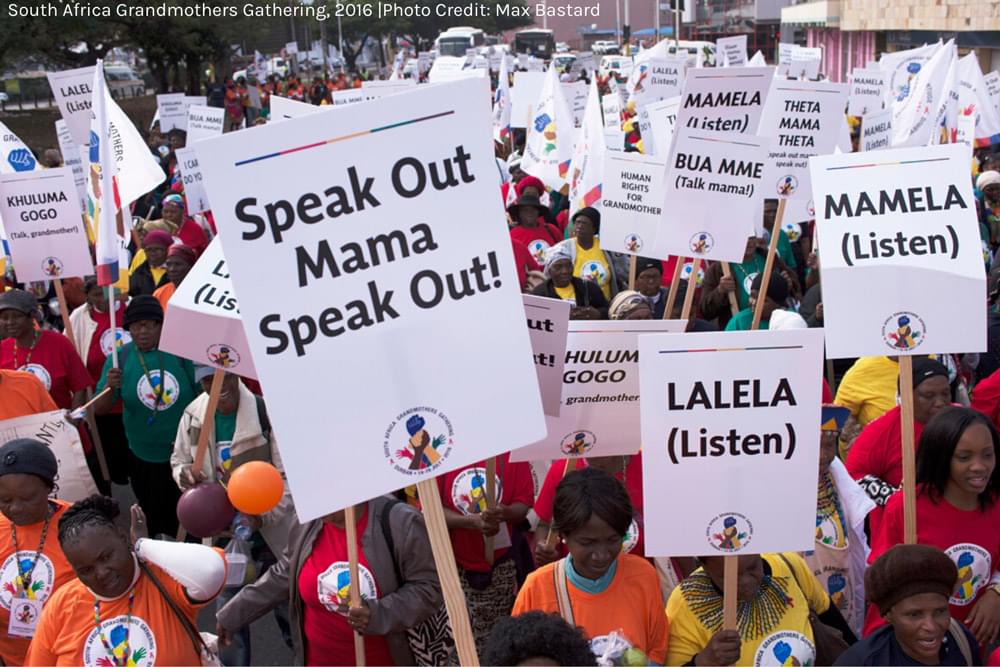
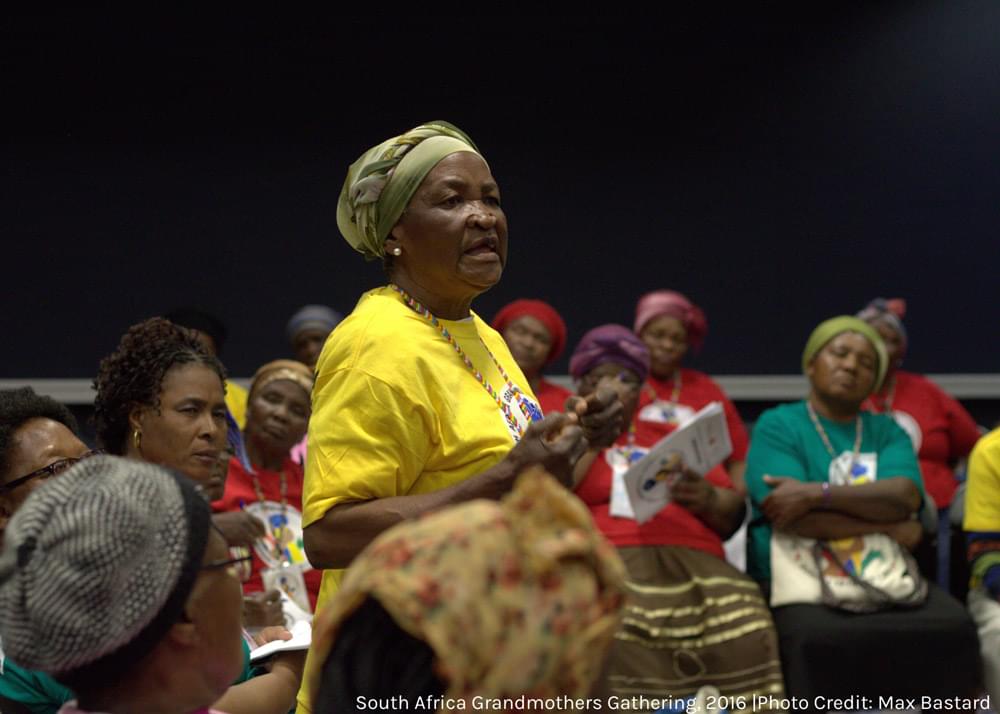
2017
Powered by Love: A Grandmothers’ Movement to End AIDS in Africa
A moving book and short documentary weaved together the experiences of African grandmothers raising their grandchildren and the international movement of grandmothers who rallied in response.
2018
Tanzania Grandmothers Gathering
Two hundred Tanzanian grandmothers gathered in Arusha to develop an agenda for change, share their heartaches, and celebrate their successes.
Grandmothers had become invaluable allies in the fight against AIDS. Now, they were demanding a seat at the table where decision-makers create policies that affect them and the children in their care.
The Tanzanian grandmothers were meeting for the first time, powered by a momentum built on solidarity and shared purpose – to have their voices heard by those who have the power to support them.
They ran workshops on raising children living with HIV, inheritance rights and access to health care for older women.
Grandmothers from around the world took part in a spirited celebratory march to the offices of the Regional Commissioner in Arusha to deliver the Tanzania Grandmothers Statement.
“Tanzania: Protect us, listen to us, and give us opportunities. We are not asking for favours. We are speaking out for our human rights and wellbeing. Grandmothers are the reflection of our nation. When we are well taken care of, the entire society will flourish.”
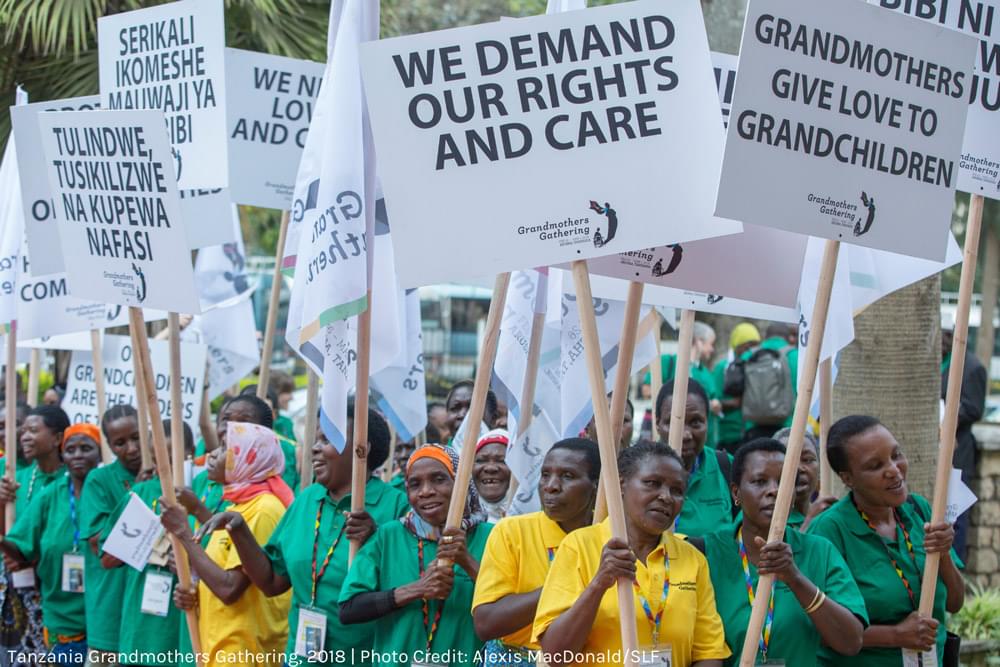
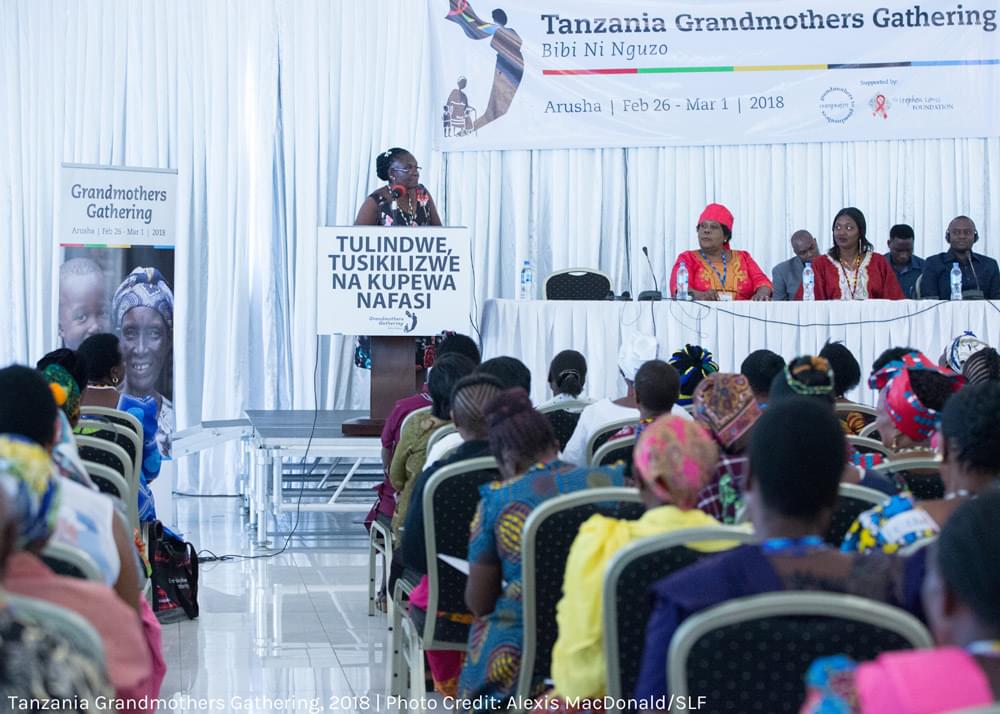
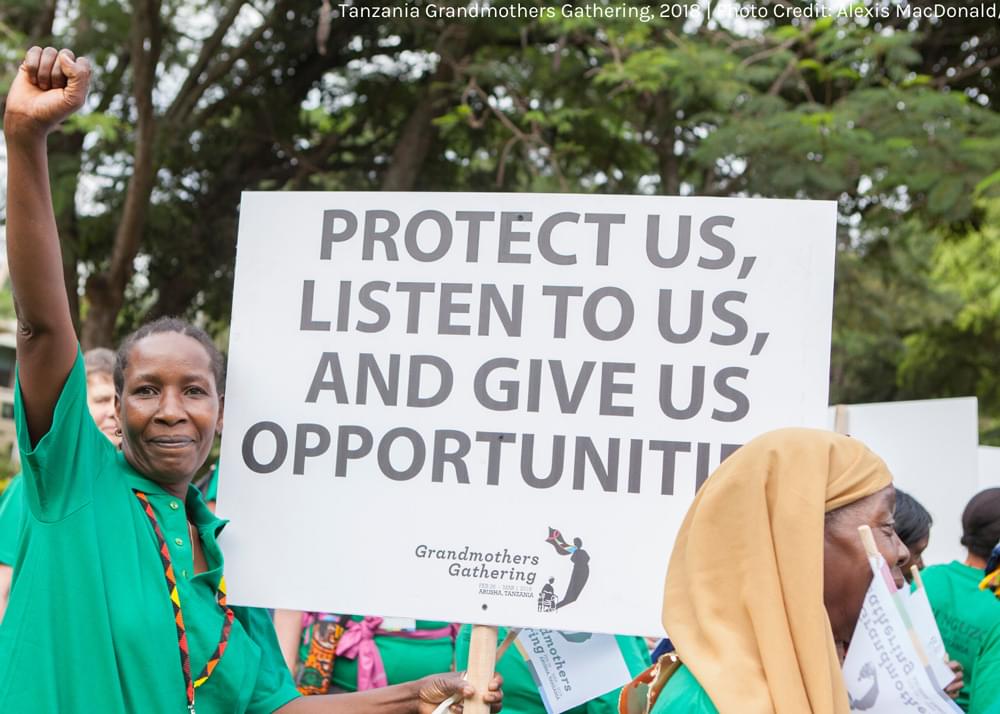
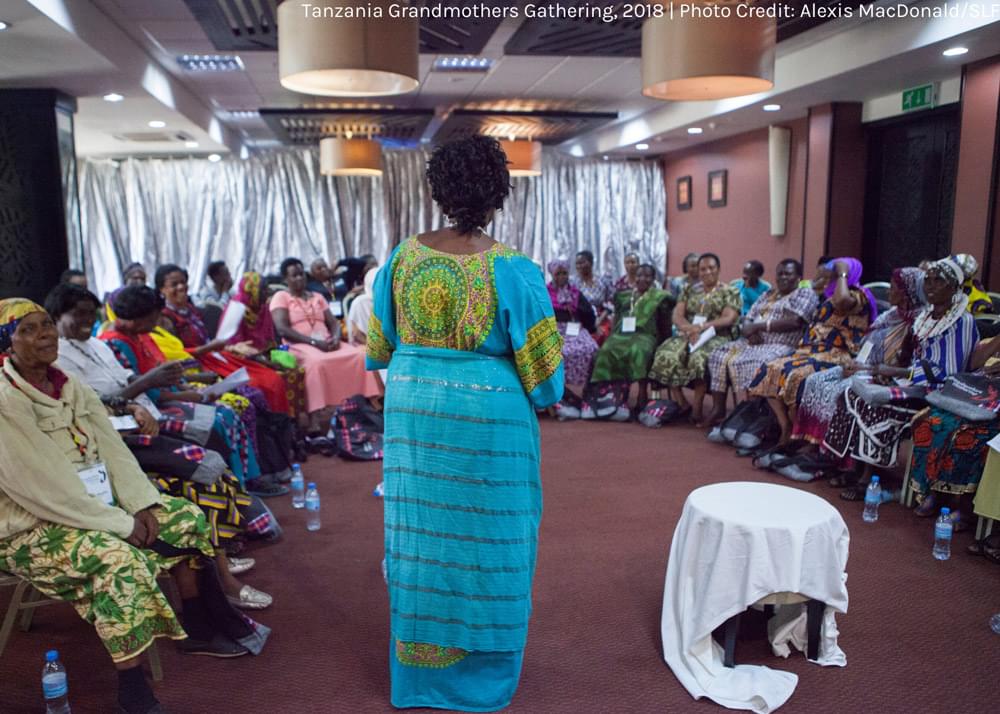
2020
Adapting during the COVID-19 pandemic
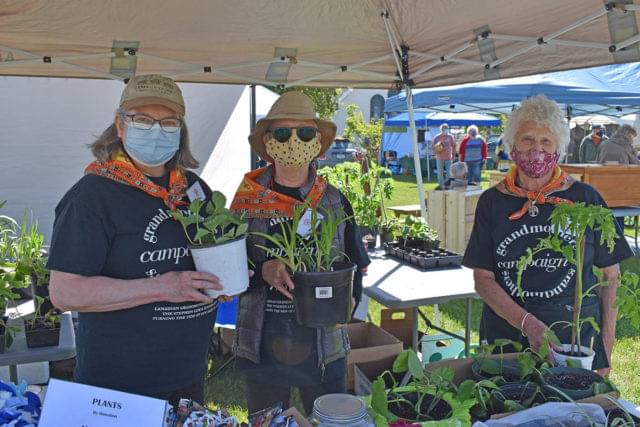
Grandmothers and grandothers demonstrated tenacity and adaptability as they tackled virtual events, marketplaces and fundraising.
Physical gatherings were restricted, but the sense of community continued as grandmothers met and supported one another virtually. Across the campaign, creativity, collaboration and commitment were sprouting new initiatives and activities.
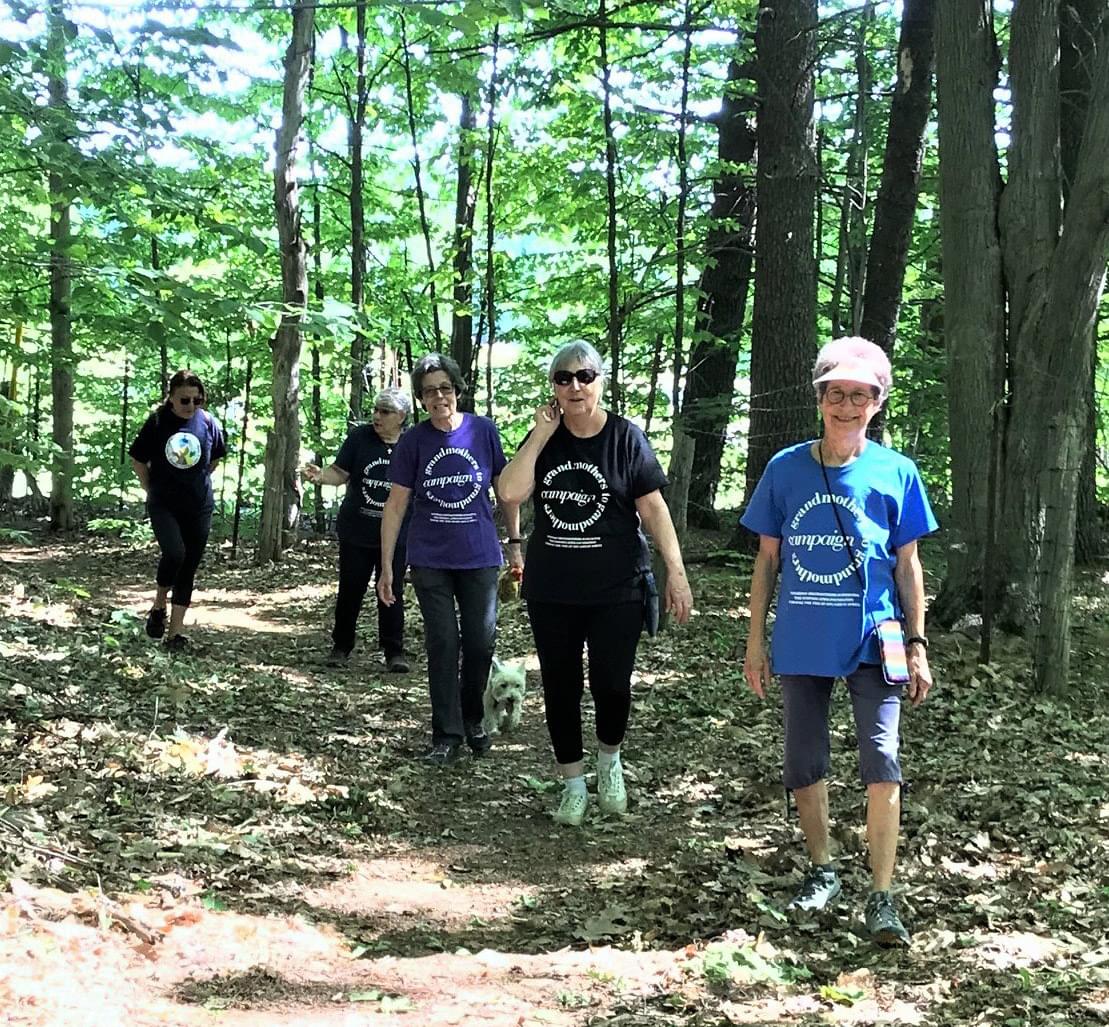
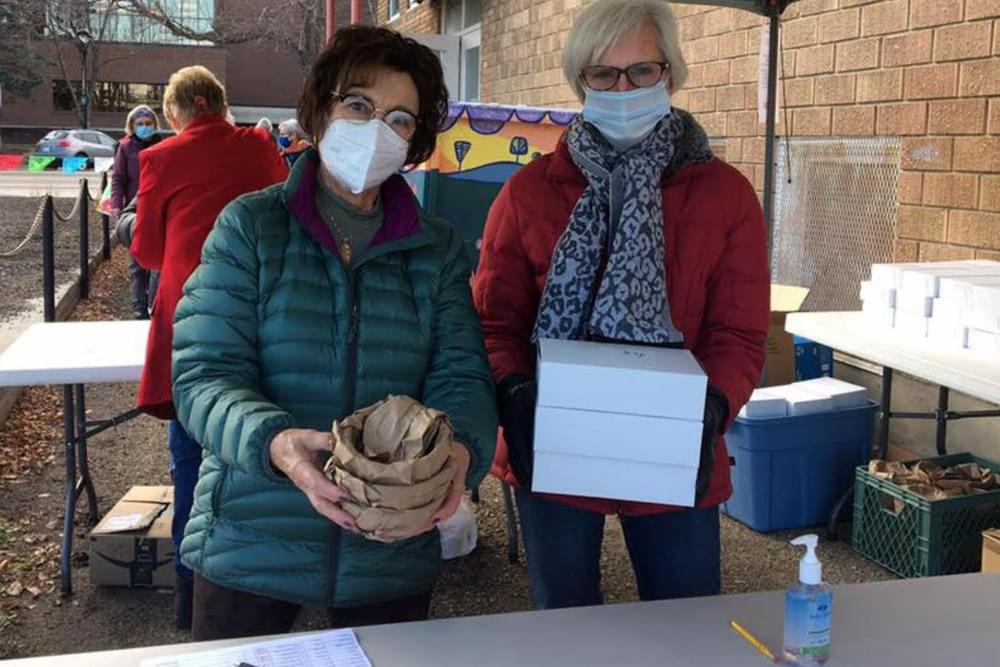
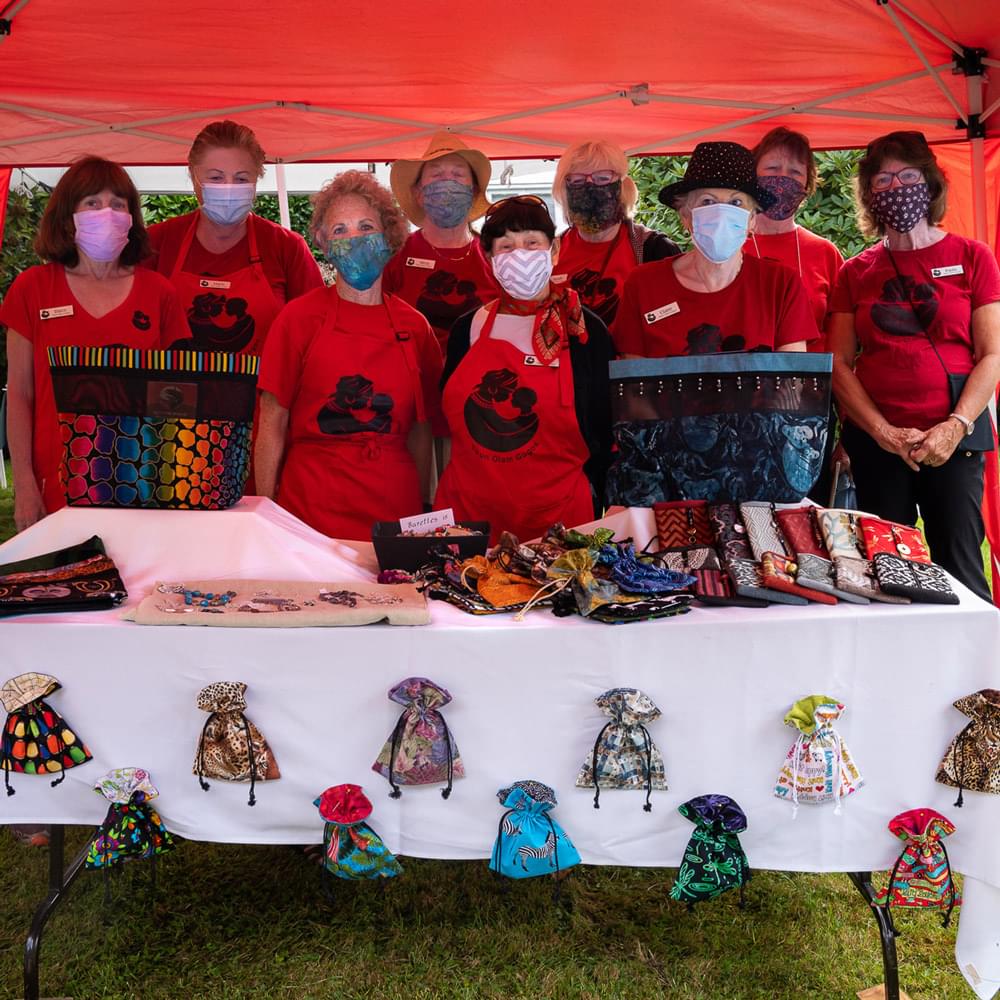
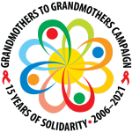
2021
Stronger in Solidarity
Fifteen years after the Grandmothers Campaign was launched, more than $40 million has been raised in support of African grandmothers.
Grandmothers groups are thriving, growing and organizing in Canada, Australia, the United Kingdom, and the United States.
They are not slowing down. Together, grandmothers are modelling a collaborative, feminist, grassroots movement that affirms the autonomy, expertise and readiness of grandmothers in sub-Saharan Africa, as well as community-based organizations, and people living with and affected by HIV and AIDS.
“I feel that the grandmothers movement has presented to the world an alternate way of understanding aid – based on human connection, partnership and mutual respect. I think it also shakes up attitudes towards the elderly, particularly elder women.”
– Theresa Randles, Grandmothers of Steel, Canada
“The unsung heroes are now being sung.”
– Canon Jolly Hope Babirukamu, Chair, Grandmother’s Consortium, Uganda
Impact

more than $40 million
raised in support of grandmothers and the community-based organizations who support them in 14 countries across Africa

150+
international grandmothers groups mobilize support and funds
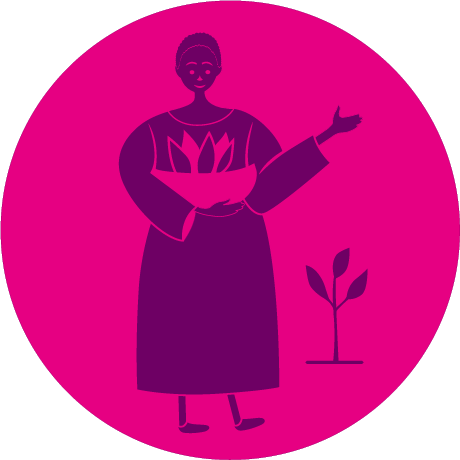
35,000+
grandmothers participated in support groups and income generation (2019)
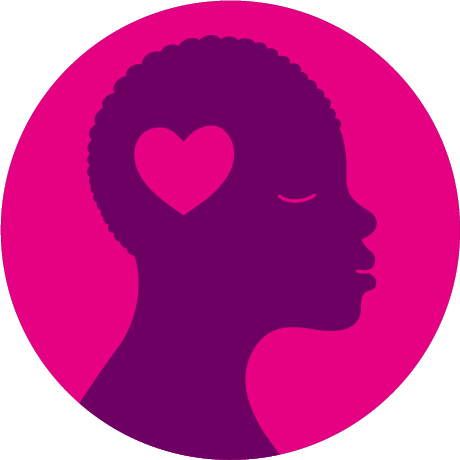
25,000+
children and youth received psychological support (2019)
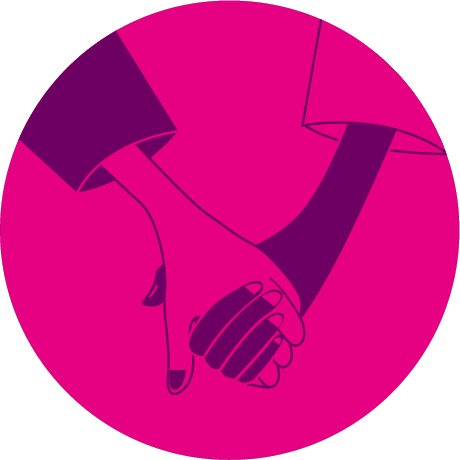
10,000+
Canadian grandmothers and grandothers act in solidarity


